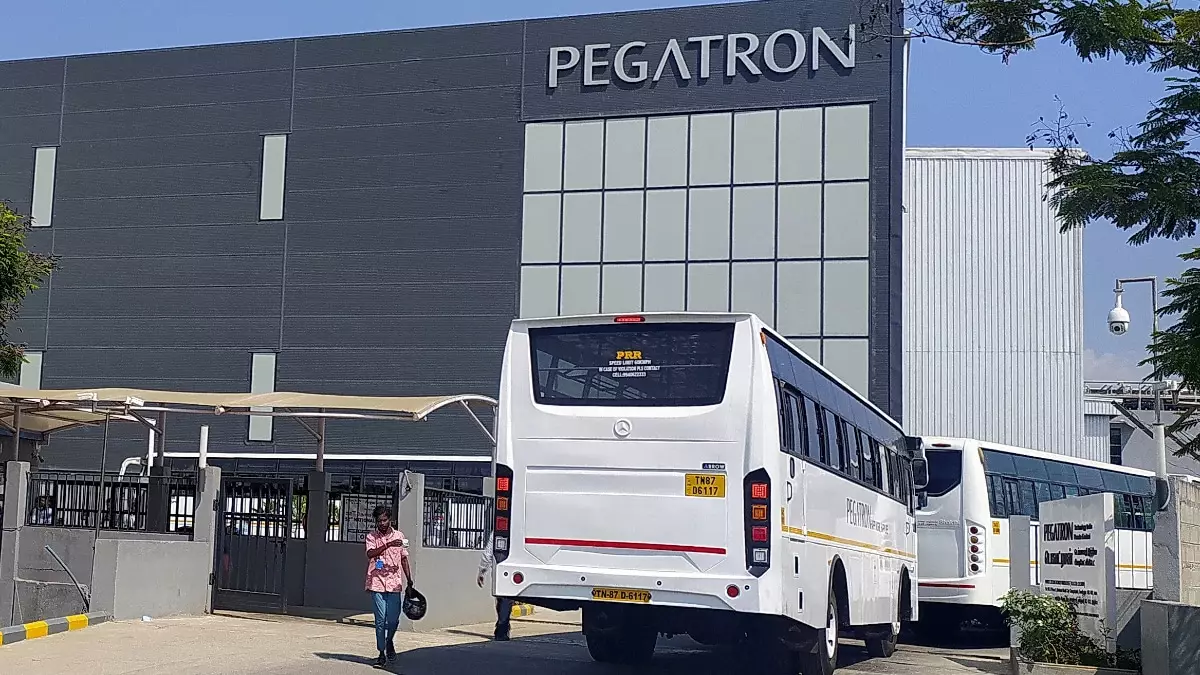A fire at Tata Group’s component manufacturing facility in Hosur, Tamil Nadu, has raised significant concerns regarding Apple’s production capabilities, particularly as the festive sales season looms large. This striking incident not only halted production at the plant, but it also stirs apprehensions about meeting the anticipated demand for iPhone 14 and 15 models during one of India’s most lucrative shopping periods. Industry analysts suggest that as much as 15 percent of the expected local demand could remain unsatisfied unless alternative production solutions are arranged swiftly.
Tata’s Hosur plant serves as a critical node in Apple’s supply chain, providing essential components such as back panels for iPhones manufactured by suppliers like Foxconn. With the festive season starting late October, the timing of the fire is particularly damaging, implicating potential revenue loss for Apple and its suppliers during a peak sales window. Analysts from Counterpoint Research project that around 1.5 million units could be sold during this festive period, thus intensifying the stakes for a quick resolution.
In the wake of the fire, analysts assert that Apple can offset some of the production shortfall by leveraging existing stocks and potentially increasing imports of critical components from other countries, such as China. Typically, Apple suppliers maintain a robust inventory of back panels—estimated at three to four weeks under normal circumstances. However, a knowledgeable insider suggested that the usable stockpile might extend up to eight weeks in this instance, providing a buffer against immediate production impacts.
That said, a prolonged shutdown at Tata’s manufacturing facility poses a serious threat to Apple’s operational logistics. Should the delay continue, Apple executives might find themselves compelled to establish alternative assembly lines in China or enhance existing ones to mitigate supply issues for the Indian market. This contingency may affect not just Tata but also other local suppliers who are part of Apple’s dynamic assembly ecosystem.
The ramifications of this incident extend beyond Tata and Apple, reflecting deep-seated issues within India’s manufacturing landscape. The Modi administration has actively promoted the “Make in India” initiative to draw foreign investment and cultivate an enduring electronics manufacturing sector. However, episodes like these—characterized by supply chain interruptions and safety lapses—could deter potential investors from committing fully to what still remains a nascent manufacturing hub.
Similar historical incidents involving suppliers like Foxlink and Pegatron underscore these vulnerabilities and illustrate a pattern of operational disruptions within Apple’s Indian supply chains. Compounding this issue is a series of labor disputes affecting contractors like Wistron and Foxconn, which only adds to the chaotic landscape.
Tata Group’s fire incident could pose delays not only in current production but might also stall the planned commencement of whole iPhone manufacturing at another of its facilities. This expansion was eagerly anticipated and could have positioned Tata as a more prominent player in Apple’s Indian supply network. Analysts project Tata could account for a significant portion of Apple’s global shipments, increasing from last year’s 12-14 percent to 20-25 percent in 2023.
As Tata navigates through recovery from this fire incident, the longer-term implications for the company and Apple could be profound. For Tata, consolidation of its manufacturing capabilities and strengthening safety measures are crucial. Meanwhile, Apple’s reliance on a diverse and resilient supply chain becomes more pronounced, highlighting the need for flexibility in its operational strategies to weather such unforeseen circumstances.
Overall, the fire incident at Tata’s plant sheds light on the broader vulnerabilities inherent in global supply chains, particularly within high-stakes industries like electronics manufacturing. As Tata and Apple strategize their next steps amidst the aftermath, the importance of continued investment in safety and operational improvements cannot be overstated, ensuring that India firmly establishes its position as a significant player in the international electronics market.


Leave a Reply